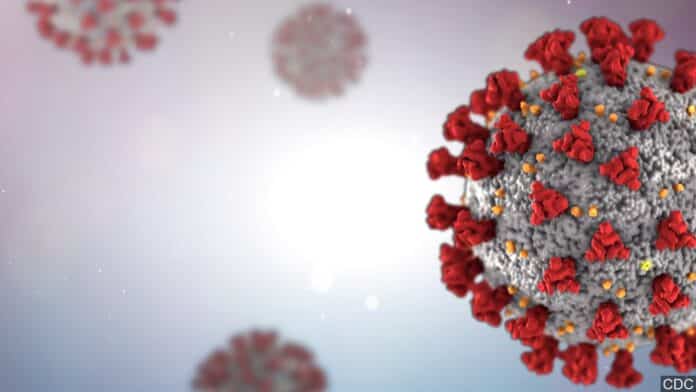HARLINGEN — Even as the delta variant of COVID-19 threatens to terrorize the public once again, new defenses against the coronavirus offer new hope.
Dr. Ameer Hassan, head of the neuroscience department at Valley Baptist Medical Center, has just published a paper showing that certain arthritis pain medications can combat the pandemic on several fronts.
The paper published in “Annals of Medicine and Surgery” shows how n-acetylglucosamine, or NAG, can prevent the COVID virus from replicating. This reduces the symptoms of those infected by the Delta or any other variant.
“It’s the arthritis drug that’s been in use for decades, so we have a great safety profile,” Hassan said. “Our running theory is it helps with the inflammatory cascade and it decreases viral replication.”
Hassan said his staff at Valley Baptist conducted a small phase II study last year with 50 individuals to explore the potential of NAG for treating COVID patients.
“What we did was a small study on in patients who were admitted COVID positive,” Hassan said. “They had shortness of breath, so these were pretty sick patients. They can’t just be sent home. We gave them NAG on top of the medications that their admitting physicians wanted.”
What he and his associates found was that, after adjusting for age and other factors, those given NAG had on average shorter hospital stays, fewer admissions to ICU, and improved clinical outcomes. The biggest difference, he said, was the change in mortality rate. Those without NAG had a 28 percent mortality rate. That number dropped to 12.5 percent in those who were administered NAG.
The findings are bolstered by a separate Turkish study showing genetic uniformity of a specific region in the COVID-19 genome. This is where researchers believe NAG binds with the virus, which explains why it doesn’t replicate.
“We actually believe it works more on the immune system,” Hassan said. “We think it binds with the part of the virus that triggers viral replication. Since it binds with it, it blocks it.”
He and his fellow researchers are excited the word is finally out about this promising new weapon against COVID, especially with the increase in Delta infections.
“We have close family and friends that have been taking NAG religiously,” he said. “They have thankfully not gotten COVID, or if they did they got a very light version and they didn’t have to be admitted to the hospital.”
The next step, he said, is to conduct a phase III study involving about 200 people.
“We’re trying to get a grant for phase III,” he said. “It’s already been submitted, so we should hear something by September. We would start the study in October or November, and that would be great because that’s probably when Delta will spike in the U.S. We’ll probably have over 100,000 cases a day sometime in the fall.”
In the meantime, what should people do to protect themselves against the Delta variant?
“We are seeing that vaccinated people — and even people that had COVID — are getting Delta,” he said. “That means you should be taking care of yourself, washing your hands. We need to wear face masks, especially when we are in rooms with people who are not vaccinated.”
As for taking NAG as a preventive measure, doctors aren’t sure yet.
“In my mind it doesn’t hurt,” he said. “I still do take NAG. I have several friends and colleagues, a lot of our nurses and cath lab and ICU people who take it. They never got COVID or if they did they were never admitted to the hospital.”




